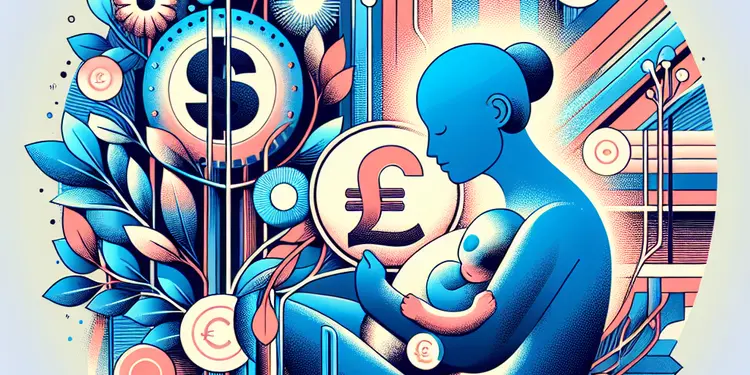
Find Help
More Items From Ergsy search
-
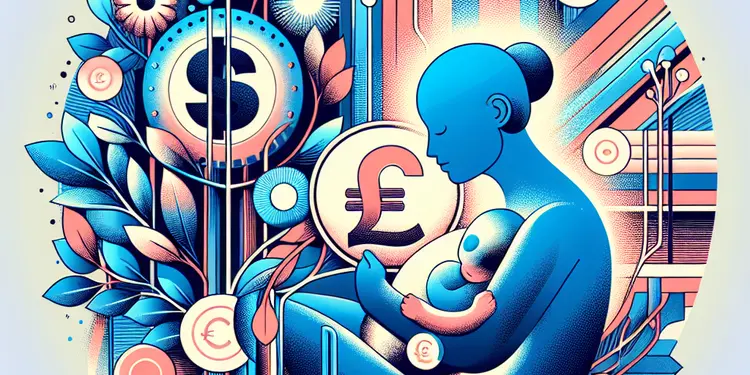
What are the symptoms of postnatal depression?
Relevance: 100%
-
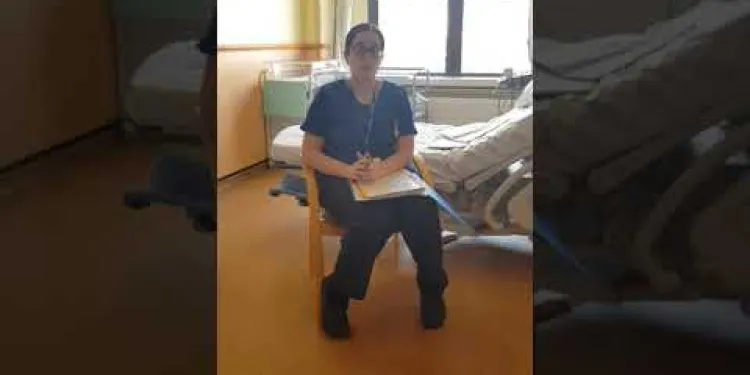
Postnatal Depression
Relevance: 92%
-
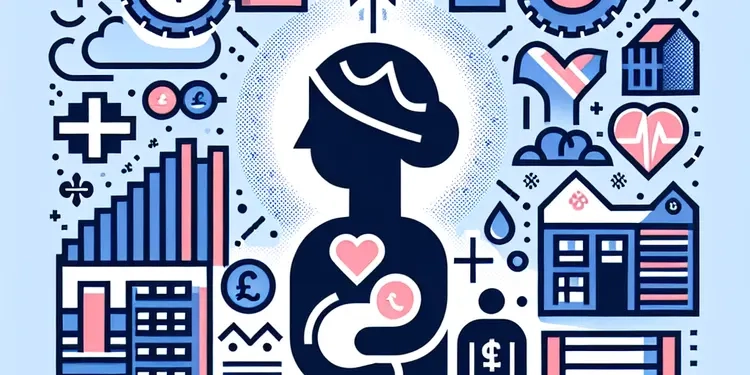
What is postnatal depression?
Relevance: 89%
-
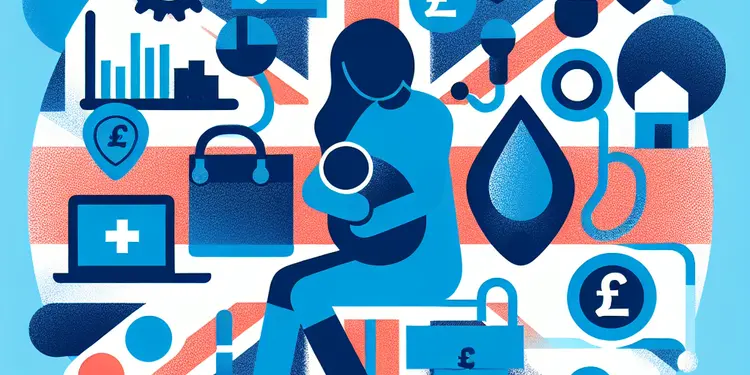
How is postnatal depression diagnosed?
Relevance: 85%
-

Postnatal Depression - Leanne's Story
Relevance: 84%
-

Is postnatal depression a long-term condition?
Relevance: 84%
-
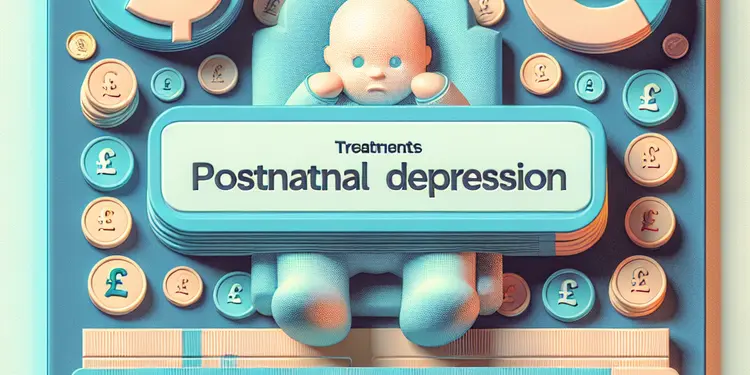
Are there treatments available for postnatal depression?
Relevance: 83%
-
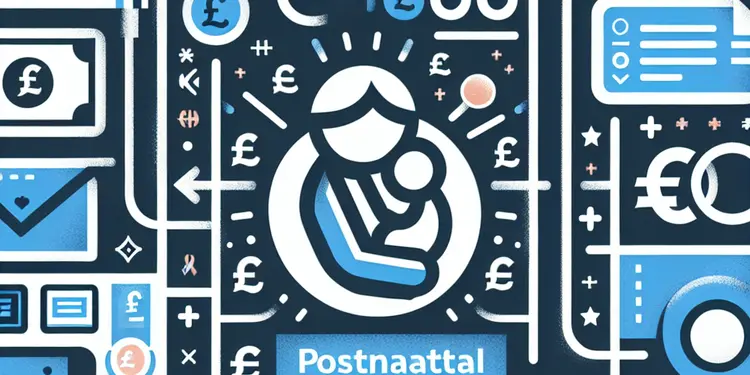
Is postnatal depression preventable?
Relevance: 82%
-

Can fathers experience postnatal depression?
Relevance: 82%
-

What causes postnatal depression?
Relevance: 80%
-
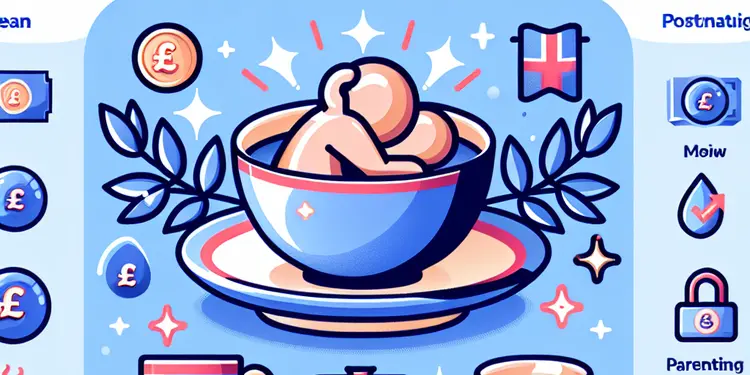
Are there support groups for postnatal depression?
Relevance: 80%
-
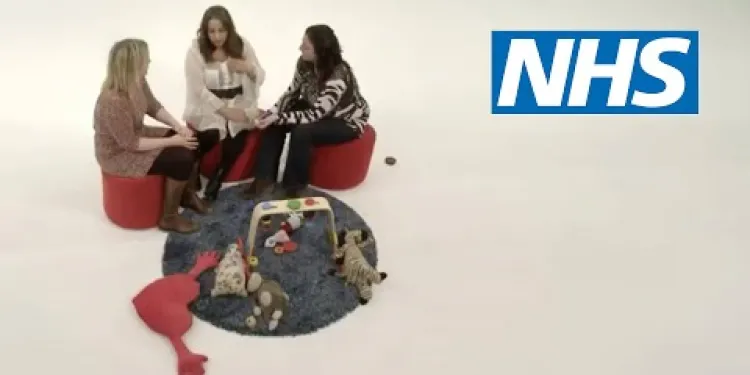
How do I know if I have postnatal depression? | NHS
Relevance: 80%
-
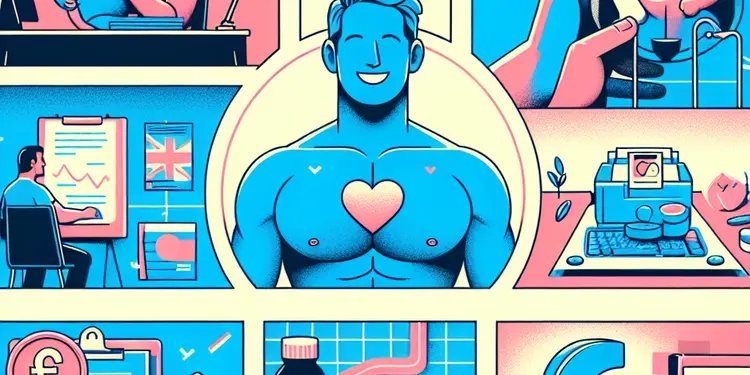
Is medication necessary for treating postnatal depression?
Relevance: 79%
-
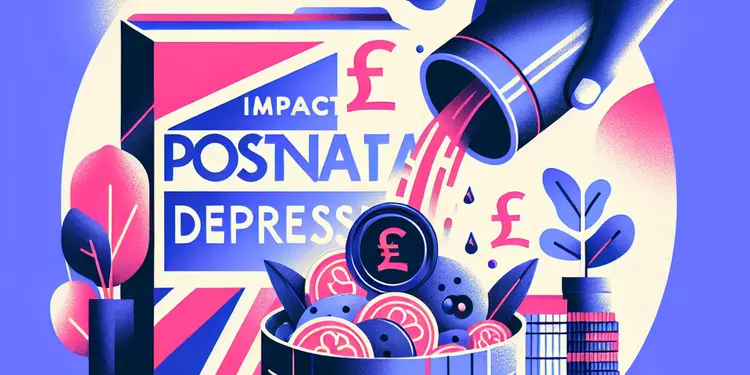
Can diet impact postnatal depression?
Relevance: 79%
-
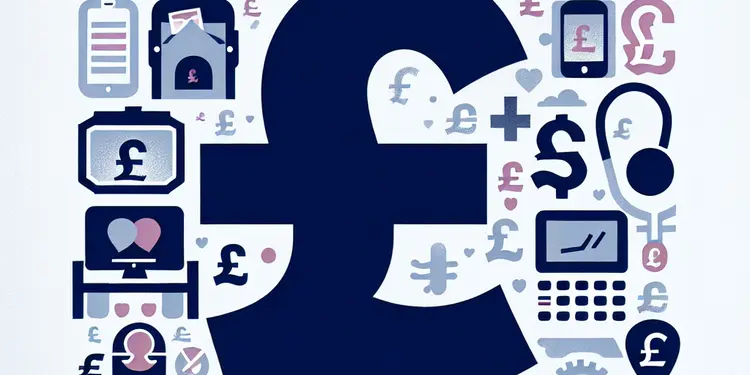
What should I do if I suspect I have postnatal depression?
Relevance: 79%
-
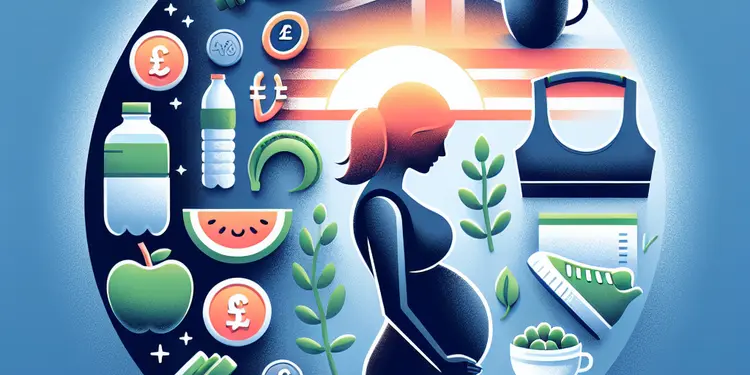
Can lifestyle changes help with postnatal depression?
Relevance: 78%
-
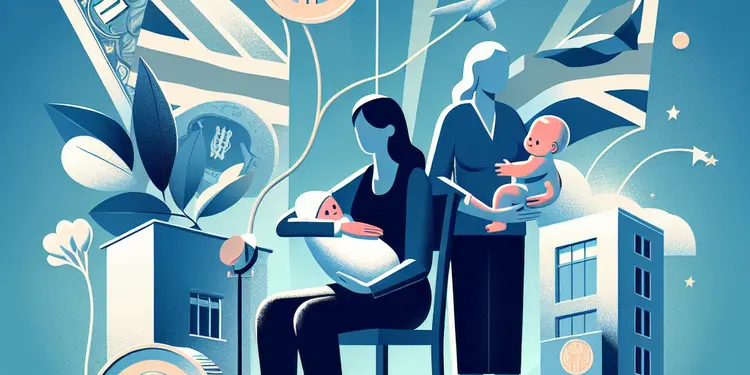
Can postnatal depression recur after treatment?
Relevance: 77%
-
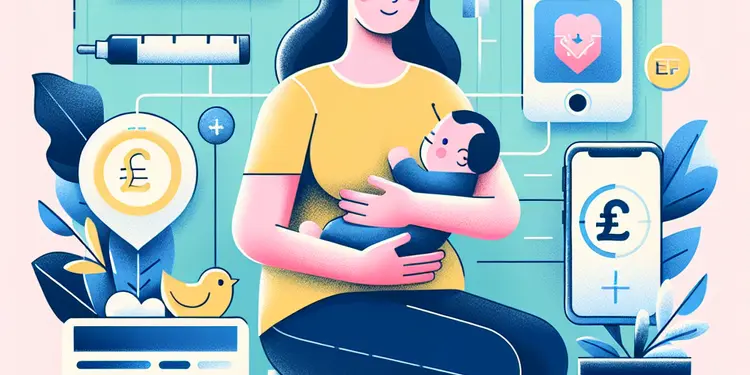
How is postnatal depression different from the 'baby blues'?
Relevance: 77%
-

Can postnatal depression affect subsequent pregnancies?
Relevance: 77%
-

Should someone with postnatal depression seek professional help?
Relevance: 76%
-
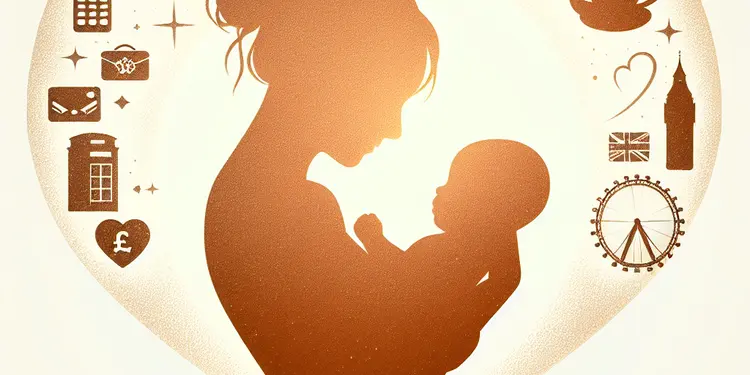
How does postnatal depression affect bonding with the baby?
Relevance: 76%
-
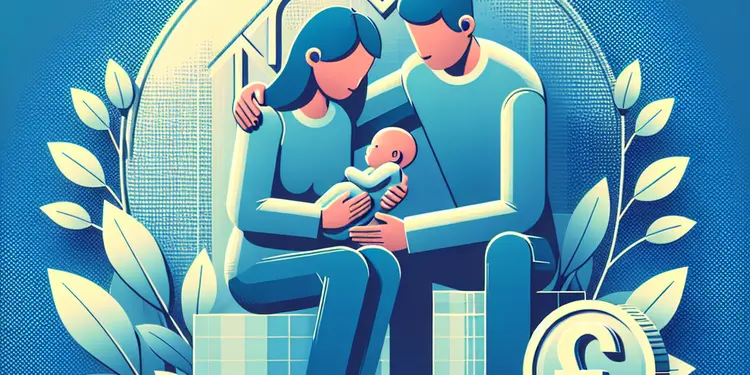
How can family members support someone with postnatal depression?
Relevance: 69%
-
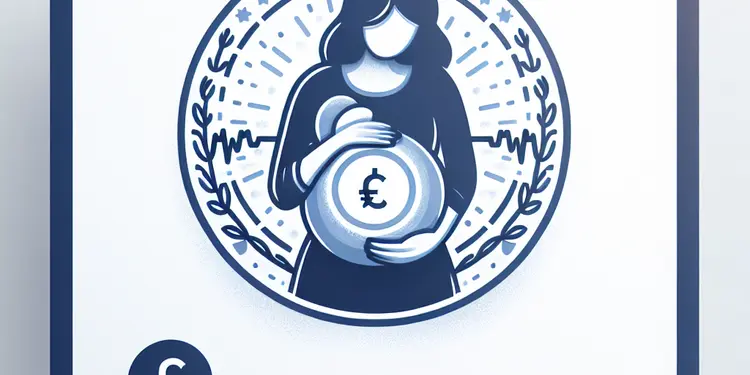
How soon after childbirth can postnatal depression occur?
Relevance: 52%
-

Can physical symptoms be linked to relationship-induced depression?
Relevance: 50%
-

Treating anxiety and depression - www.slam.nhs.uk
Relevance: 39%
-

Clinical depression: Lawrence's story | NHS
Relevance: 37%
-
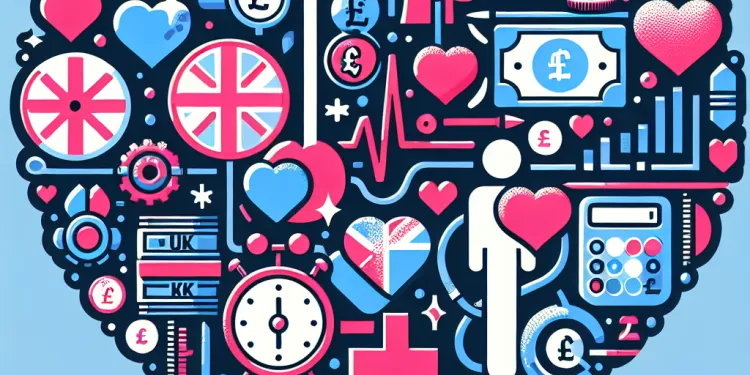
What are the signs that my relationship is making me depressed?
Relevance: 37%
-

How quickly can ketamine alleviate depression symptoms?
Relevance: 36%
-
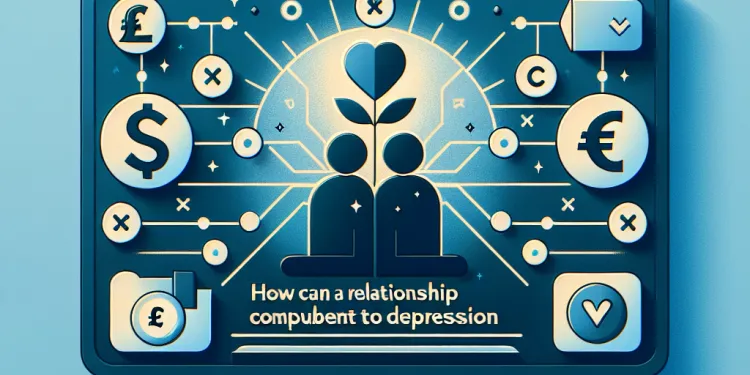
How can a relationship contribute to depression?
Relevance: 35%
-
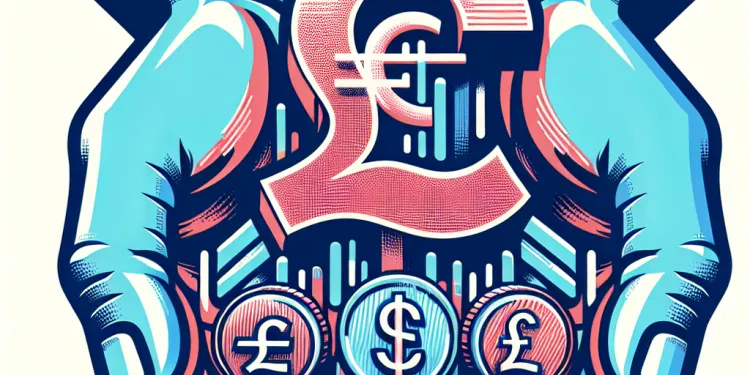
Are there any self-care strategies to cope with relationship-induced depression?
Relevance: 34%
-
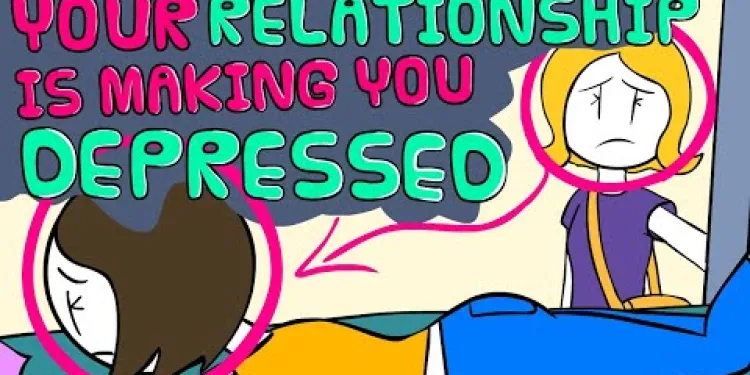
7 Signs Your Relationship is Making You Depressed
Relevance: 34%
-
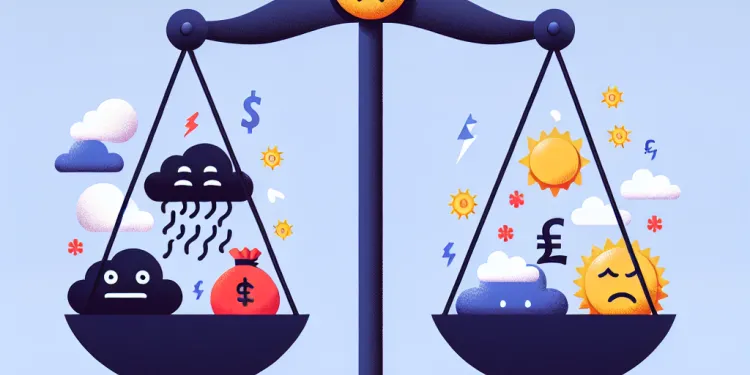
What role do unhealthy dynamics play in causing depression?
Relevance: 33%
-

I couldn't celebrate Hibs beating Hearts because I was that depressed
Relevance: 32%
-

What are the symptoms of SAD?
Relevance: 30%
-

Is it possible for alcohol alone to cause similar symptoms?
Relevance: 28%
-
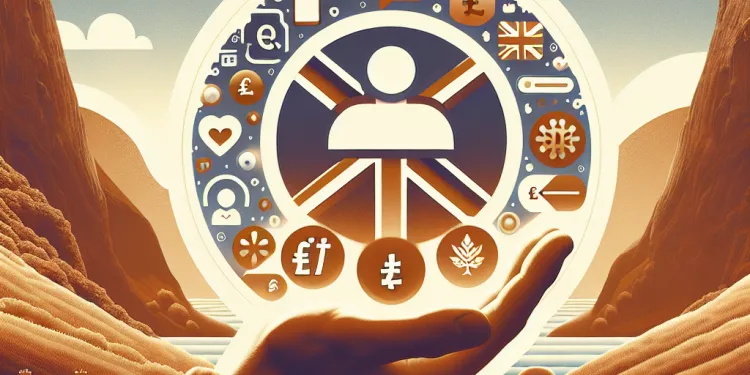
What should I do if my partner dismisses my feelings of depression?
Relevance: 28%
-
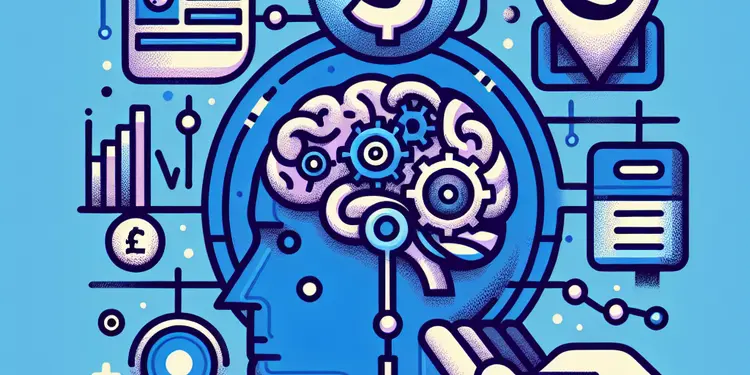
What are the symptoms of Huntington's disease?
Relevance: 27%
-

What are the symptoms of long covid?
Relevance: 26%
-

Postpartum Health: Mother and Baby
Relevance: 25%
-
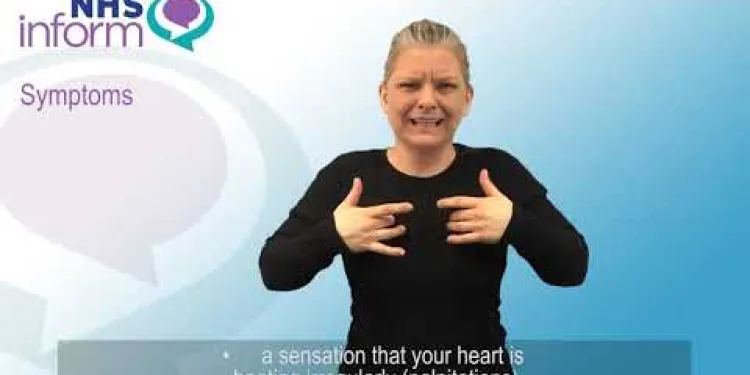
BSL - Symptoms of panic disorder
Relevance: 25%
Understanding Postnatal Depression
Postnatal depression (PND) is a type of mood disorder that affects some people after having a baby. It can affect both mothers and, less frequently, fathers or partners. Recognising the symptoms can help individuals seek appropriate support and treatment.
Common Symptoms of Postnatal Depression
Postnatal depression is more severe than the "baby blues," which many new mothers experience within the first few days after giving birth. Symptoms of PND can develop gradually or suddenly, and they may not appear immediately after childbirth. It is important to be attentive to the symptoms, as they can significantly impact daily life and functioning.
Emotional Symptoms
One of the most frequent symptoms of postnatal depression is a persistent feeling of sadness. New mothers may also feel tearful and overwhelmed, finding it difficult to cope with everyday tasks. A noticeable lack of enjoyment or interest in life, even in activities that the person once found pleasurable, is common. Guilt and a sense of failure about parenting can also pervade, leading to severe self-doubt.
Physical Symptoms
Individuals with postnatal depression might experience physical symptoms such as constant tiredness and fatigue, even when receiving sufficient sleep. Appetite changes might occur, leading to weight loss or gain. Sleep disturbances are also characteristic, ranging from insomnia to excessive sleeping.
Cognitive and Behavioural Symptoms
Mental processes can be deeply affected. A person might have difficulty concentrating, making decisions, or remembering things. Motivation often drops, resulting in neglecting oneself or struggling to find the energy to get out of bed. Feelings of anxiety are also common, potentially leading to panic attacks.
Social Symptoms
Social withdrawal is another notable symptom. Those affected might find themselves avoiding social interactions and struggling to bond with their baby. Relationships with partners and family members may suffer, leading to increased feelings of isolation.
Severe Symptoms
In extreme cases, postnatal depression can lead to thoughts of self-harm or suicide. Some may also experience thoughts of harming their baby, though this is less common and can be distressing. It is crucial to seek immediate help if such thoughts occur.
Seeking Help and Support
If you or someone you know shows signs of postnatal depression, reaching out to healthcare professionals in the UK is essential. Health visitors, midwives, and GPs can offer support and treatment options, including therapy and medication. Early intervention can significantly improve outcomes for both the parent and their family.
Understanding Postnatal Depression
Postnatal depression (PND) is a kind of sadness some people feel after having a baby. It can affect mothers and sometimes fathers or partners too. Knowing the signs can help people get the right help.
Common Symptoms of Postnatal Depression
Postnatal depression is more serious than the "baby blues." Many new moms feel "baby blues" in the first days after the baby comes. PND can start slowly or quickly, even weeks or months after birth. It can make daily life hard.
Emotional Symptoms
One common sign of postnatal depression is feeling sad all the time. New moms may cry a lot or feel overwhelmed. Things they used to enjoy may not be fun anymore. They might feel guilty or like they are not good parents.
Physical Symptoms
People with postnatal depression might always feel tired, even if they sleep enough. They might eat more or less than usual and gain or lose weight. They might have trouble sleeping or sleep too much.
Cognitive and Behavioural Symptoms
Thinking can be hard. A person might have trouble focusing, deciding, or remembering. They might not feel like doing anything or getting out of bed. Anxiety or panic attacks can happen too.
Social Symptoms
People might not want to see friends or family. It can be hard to connect with their baby. Relationships with partners and family can be strained, making them feel alone.
Severe Symptoms
In very serious cases, a person might think about hurting themselves or their baby, but this is rarer. If these thoughts happen, it's very important to get help right away.
Seeking Help and Support
If you or someone you know has signs of postnatal depression, it is important to talk to healthcare professionals in the UK. Health visitors, midwives, and doctors (GPs) can help with treatment like talking therapy or medication. Getting help early can help both the parent and their family feel better.
Frequently Asked Questions
What are common symptoms of postnatal depression?
Common symptoms include persistent sadness, fatigue, lack of joy in life, a sense of hopelessness, difficulty bonding with the baby, anxiety, and changes in sleep and eating patterns.
How soon after childbirth can symptoms of postnatal depression appear?
Symptoms can appear anytime in the first year after childbirth, but they often begin within the first few weeks.
Can postnatal depression affect a mother's ability to care for her baby?
Yes, postnatal depression can affect a mother's ability to care for her baby and herself, making everyday tasks feel overwhelming.
Is feeling disconnected from my baby a symptom of postnatal depression?
Yes, feeling emotionally detached or having difficulty bonding with your baby is a common symptom of postnatal depression.
Are anxiety and irritability signs of postnatal depression?
Yes, increased anxiety and irritability are common symptoms of postnatal depression.
Can postnatal depression include physical symptoms?
Yes, physical symptoms such as headaches, stomach problems, and muscle pain can accompany emotional symptoms.
Is loss of interest in activities a symptom of postnatal depression?
Yes, losing interest or pleasure in activities you once enjoyed is a symptom of postnatal depression.
How does postnatal depression differ from 'baby blues'?
While 'baby blues' are temporary mood swings that subside within two weeks, postnatal depression is more severe and long-lasting.
Can postnatal depression lead to thoughts of self-harm?
Yes, postnatal depression can lead to feelings of worthlessness and thoughts of self-harm or suicide in severe cases.
Is lack of concentration a symptom of postnatal depression?
Yes, difficulty concentrating and making decisions is a common symptom of postnatal depression.
Can postnatal depression affect sleeping patterns?
Yes, it can cause insomnia or excessive sleeping, even when the baby is sleeping.
What impact can postnatal depression have on appetite?
It can cause changes in appetite, leading to weight loss or gain.
Can unexplained crying be a symptom of postnatal depression?
Yes, frequent bouts of crying without clear reason are a symptom of postnatal depression.
Are there cognitive symptoms associated with postnatal depression?
Cognitive symptoms like difficulty thinking clearly or concentrating can occur with postnatal depression.
How long can untreated postnatal depression last?
Without treatment, postnatal depression can last for months or even longer, impacting the mother's well-being and family.
Can postnatal depression include feelings of guilt?
Yes, feelings of guilt or inadequacy as a parent are common symptoms.
Are there emotional symptoms specific to postnatal depression?
Emotional symptoms include feelings of sadness, emptiness, and mood swings.
Is withdrawal from family and friends a symptom?
Yes, individuals with postnatal depression may withdraw from loved ones and social activities.
Can experiencing a lack of energy be a symptom?
Yes, persistent fatigue or lack of energy is a common symptom.
Do symptoms of postnatal depression require medical attention?
Yes, if symptoms persist or worsen, it is important to seek medical advice and support.
What are signs of feeling very sad after having a baby?
Some new parents feel very sad and tired after their baby is born. This is called postnatal depression. Look for these signs:
- Feeling very sad or upset often.
- Not wanting to do things you used to enjoy.
- Having no energy or feeling very tired all the time.
- Finding it hard to sleep, even when the baby is asleep.
- Finding it hard to focus or make decisions.
- Worrying a lot about the baby or feeling nervous.
- Feeling bad about yourself or feeling guilty.
Getting help is important. Talk to someone you trust, like a doctor or a friend. They can help you feel better. There are also helpful tools like talking to a counselor, joining support groups, or practicing relaxation exercises.
Here are some common signs:
- Feeling very sad for a long time
- Feeling tired all the time
- Not enjoying things that used to be fun
- Feeling like nothing will ever get better
- Finding it hard to feel close to the baby
- Feeling worried a lot
- Changes in how much you sleep or eat
It can help to talk to a friend or family member. You can also ask a doctor for help. Writing in a diary may help you understand your feelings too.
When can signs of feeling very sad after having a baby start?
Signs can show up anytime in the first year after having a baby. But they usually start in the first few weeks.
Can feeling very sad after having a baby make it hard for a mom to look after her baby?
Yes, some new mothers feel very sad after having a baby. This is called postnatal depression. It can make it hard for moms to take care of their baby and themselves. It can also make everyday tasks feel too difficult.
Here are some things that might help:
- Talk to someone you trust about how you feel.
- Ask for help with chores and looking after the baby.
- Try to rest and eat healthy food.
Can feeling away from my baby mean I have postnatal depression?
Yes, sometimes new parents feel like they can't connect with their baby. This can happen when someone has postnatal depression. It is not unusual.
Do feeling worried and grumpy mean you have postnatal depression?
Yes, feeling more worried and grumpy can be signs of feeling sad after having a baby.
Can you feel it in your body when you have postnatal depression?
Yes, your body can feel bad when you are upset. You might get a headache, have a tummy ache, or your muscles could hurt.
Is losing interest in activities a sign of feeling sad after having a baby?
Yes, feeling like you don't care about things you used to love can be a sign of feeling sad after having a baby.
What is the difference between feeling sad after having a baby and postnatal depression?
Having a baby can make new mums feel sad or worried. This feeling is often called the "baby blues" and it usually goes away on its own.
Postnatal depression is more serious. It lasts longer and can make it hard for mums to take care of themselves and the baby. Mums might need help from a doctor to feel better.
To help understand these feelings, try talking to a friend or family member. A doctor or nurse can also provide support and advice.
After having a baby, some parents feel sad or worried for a short time. This is called 'baby blues', and it usually gets better in two weeks. But sometimes, the sadness lasts for a long time and feels much worse. This is called postnatal depression.
If you feel this way, talking to someone you trust can help. You can also ask a doctor or nurse for help. They know what to do to make you feel better.
Can feeling sad after having a baby make someone want to hurt themselves?
Sometimes, new parents feel very sad after having a baby. This is called postnatal depression.
If you or someone you know feels like hurting themselves, it is important to talk to someone who can help, like a doctor.
There are things that can help, like talking to a friend, joining a support group, or using apps that support mental health.
Yes, after a baby is born, some people might feel very sad. They might feel like they are not good enough. They might even think about hurting themselves or not wanting to be alive. This can be very serious.
Does finding it hard to focus mean you might have postnatal depression?
Some new parents feel sad after having a baby. This is called postnatal depression. It can make it hard to concentrate or focus.
If you are worried, ask a doctor or nurse for help. Make sure to rest, eat well, and talk to friends or family. They can support you.
Yes, finding it hard to focus and make choices is a common sign of feeling very sad after having a baby.
Can feeling sad after having a baby change how you sleep?
Yes, it can make it hard to sleep or make you sleep too much, even when the baby is sleeping.
How can feeling sad after having a baby change how much you want to eat?
Having a baby can make some people feel very sad. This is called postnatal depression. It can change how hungry you feel.
Here are some things that might help:
- Talk to a friend or family member. Sharing your feelings can help.
- See a doctor or nurse. They can give advice.
- Eat with others. It might make eating feel easier.
It can make you feel more or less hungry, which can make you lose or gain weight.
Can crying for no reason mean a new mom is feeling sad after having a baby?
Yes, crying a lot for no clear reason can be a sign of feeling very sad after having a baby.
Does postnatal depression affect how you think?
After having a baby, some people feel very sad.
This is called postnatal depression.
When this happens, it can be hard to think clearly.
It might also be hard to pay attention.
If someone feels like this, talking to a doctor can help.
Using sticky notes or setting reminders can help remember things.
How long can postnatal depression last if you don't get help?
If a new mom feels very sad and doesn't get help, she can stay sad for a long time. This can make her feel bad and can also affect her family.
Can new mothers feel guilty after having a baby?
Yes, lots of parents often feel bad or not good enough.
Can postnatal depression make you feel different emotions?
Emotional symptoms can make you feel sad, empty, or have changing moods.
Is pulling away from family and friends a sign?
Yes, people who feel sad after having a baby might stay away from family and friends. They might also stop doing fun things with others.
Is feeling tired a sign of something?
Yes, feeling very tired all the time or having no energy happens a lot.
Do you need to see a doctor if you feel sad after having a baby?
Sometimes, after having a baby, moms can feel really sad. This is called postnatal depression.
If you feel very sad, worried, or can't sleep, talk to a doctor. Doctors can help you feel better.
Here are some things that might help:
- Talk to a friend or family member you trust.
- Go for a walk outside.
- Rest when you can.
Remember, you are not alone, and getting help is a good thing.
If you still feel sick, or start to feel worse, it is important to talk to a doctor or nurse.
Useful Links
This website offers general information and is not a substitute for professional advice.
Always seek guidance from qualified professionals.
If you have any medical concerns or need urgent help, contact a healthcare professional or emergency services immediately.
Some of this content was generated with AI assistance. We’ve done our best to keep it accurate, helpful, and human-friendly.
- Ergsy carfully checks the information in the videos we provide here.
- Videos shown by Youtube after a video has completed, have NOT been reviewed by ERGSY.
- To view, click the arrow in centre of video.
- Most of the videos you find here will have subtitles and/or closed captions available.
- You may need to turn these on, and choose your preferred language.
- Go to the video you'd like to watch.
- If closed captions (CC) are available, settings will be visible on the bottom right of the video player.
- To turn on Captions, click settings .
- To turn off Captions, click settings again.
More Items From Ergsy search
-

What are the symptoms of postnatal depression?
Relevance: 100%
-

Postnatal Depression
Relevance: 92%
-

What is postnatal depression?
Relevance: 89%
-

How is postnatal depression diagnosed?
Relevance: 85%
-

Postnatal Depression - Leanne's Story
Relevance: 84%
-

Is postnatal depression a long-term condition?
Relevance: 84%
-

Are there treatments available for postnatal depression?
Relevance: 83%
-

Is postnatal depression preventable?
Relevance: 82%
-

Can fathers experience postnatal depression?
Relevance: 82%
-

What causes postnatal depression?
Relevance: 80%
-

Are there support groups for postnatal depression?
Relevance: 80%
-

How do I know if I have postnatal depression? | NHS
Relevance: 80%
-

Is medication necessary for treating postnatal depression?
Relevance: 79%
-

Can diet impact postnatal depression?
Relevance: 79%
-

What should I do if I suspect I have postnatal depression?
Relevance: 79%
-

Can lifestyle changes help with postnatal depression?
Relevance: 78%
-

Can postnatal depression recur after treatment?
Relevance: 77%
-

How is postnatal depression different from the 'baby blues'?
Relevance: 77%
-

Can postnatal depression affect subsequent pregnancies?
Relevance: 77%
-

Should someone with postnatal depression seek professional help?
Relevance: 76%
-

How does postnatal depression affect bonding with the baby?
Relevance: 76%
-

How can family members support someone with postnatal depression?
Relevance: 69%
-

How soon after childbirth can postnatal depression occur?
Relevance: 52%
-

Can physical symptoms be linked to relationship-induced depression?
Relevance: 50%
-

Treating anxiety and depression - www.slam.nhs.uk
Relevance: 39%
-

Clinical depression: Lawrence's story | NHS
Relevance: 37%
-

What are the signs that my relationship is making me depressed?
Relevance: 37%
-

How quickly can ketamine alleviate depression symptoms?
Relevance: 36%
-

How can a relationship contribute to depression?
Relevance: 35%
-

Are there any self-care strategies to cope with relationship-induced depression?
Relevance: 34%
-

7 Signs Your Relationship is Making You Depressed
Relevance: 34%
-

What role do unhealthy dynamics play in causing depression?
Relevance: 33%
-

I couldn't celebrate Hibs beating Hearts because I was that depressed
Relevance: 32%
-

What are the symptoms of SAD?
Relevance: 30%
-

Is it possible for alcohol alone to cause similar symptoms?
Relevance: 28%
-

What should I do if my partner dismisses my feelings of depression?
Relevance: 28%
-

What are the symptoms of Huntington's disease?
Relevance: 27%
-

What are the symptoms of long covid?
Relevance: 26%
-

Postpartum Health: Mother and Baby
Relevance: 25%
-

BSL - Symptoms of panic disorder
Relevance: 25%


